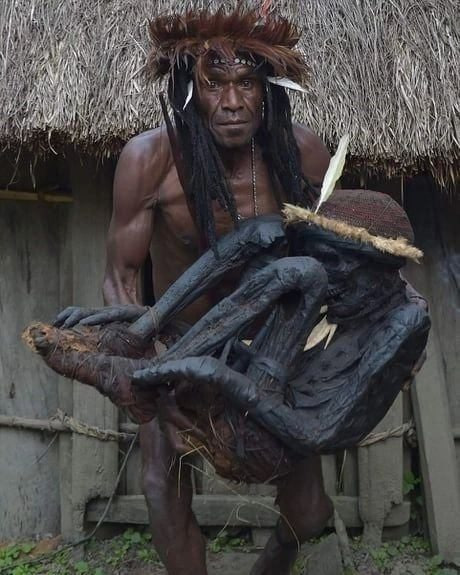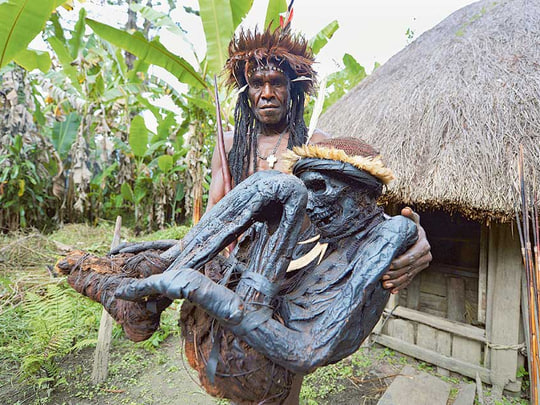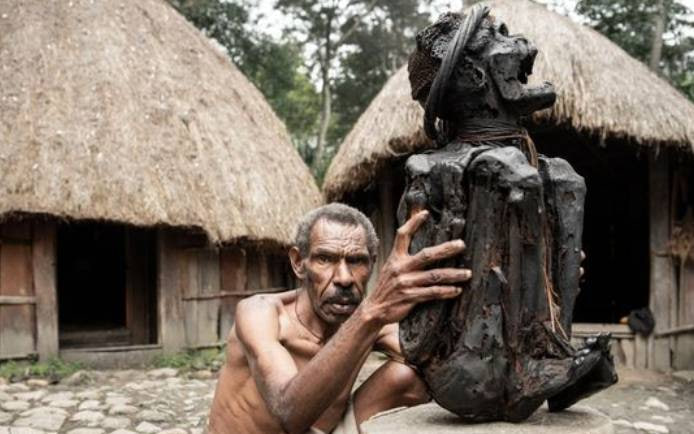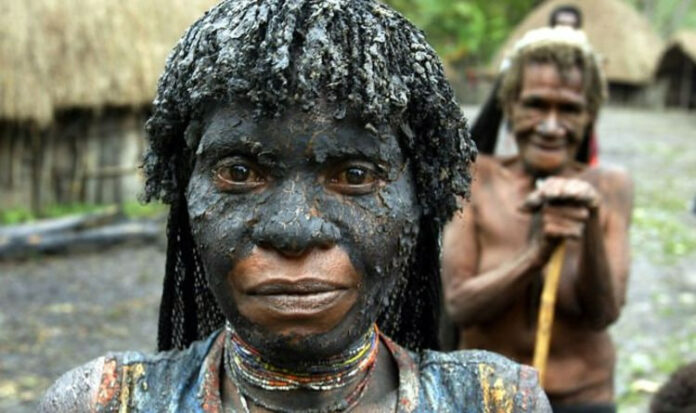Tribal chief Eli Mabel holds the body of his ancestor, Agat Mamete Mabel. Agat Mamete Mabel was a tribal chief who ruled a remote village in Papua, Indonesia, around 250 years ago. Honored after his death with a custom reserved only for important elders and local heroes among the Dani people, he was embalmed and preserved with smoke and animal oils.

In a remote village in Papua, Indonesia, around 250 years ago, there was a chieftain named Agat Mamete Mabel. When he passed away, he was honored with a special ceremony reserved only for important elders and local heroes among the Dani tribe. He was embalmed and preserved using smoke and animal oil.
Nine generations later, his descendant Eli Mabel is the current chieftain of Wogi village, an isolated hamlet outside Wamena that can only be reached by hiking and canoe. Eli Mabel mentioned that he does not know the exact age of Agat Mamete Mabel, but he told AFP that this ancestor was the last in the village to receive such a funeral. The smoke embalming method, once common among his ancestors, is no longer practiced. Christian missionaries and Muslim preachers encouraged the tribespeople to bury the corpses, and the tradition has faded over time.

However, Eli Mabel is determined to preserve the ancient rites and rituals for future generations. “We must protect our culture, including the ceremonies for the mummy, the way we treat it, and maintain a fire for it,” Eli Mabel told AFP.
The mummy, decorated with pig tusks around the torso, a feathered headpiece, and traditional penis gourd, rests in a hut known as a “honai.” This wide domed, thatch-roofed hut is tended year-round by a select few villagers who keep a fire burning to ensure the corpse remains dry and preserved.

The duty of caring for the mummy often falls to Eli Mabel. He spends many nights sleeping alone in the honai, ensuring no harm befalls his ancestor.
Eventually, the duty of caring for the mummy will be passed on to others, Eli Mabel hopes his own children will bear some responsibility for keeping their customs alive, although he worries they live far away. “I have told them they must take care of the mummy at some point in their lives,” Mabel said of his four children, some living in far-off provinces in Indonesia’s more populated centers.

The ancient Dani tribes in Indonesia’s half of the island of New Guinea were cut off from the outside world until well into the 20th century. Their homeland in the Baliem Valley was isolated by steep, rugged valleys and dense highland forests. Today, the region remains one of the poorest in Indonesia. Many tribes rely on tourism, their unique customs, traditional dress, and rituals attracting visitors to their remote villages.




